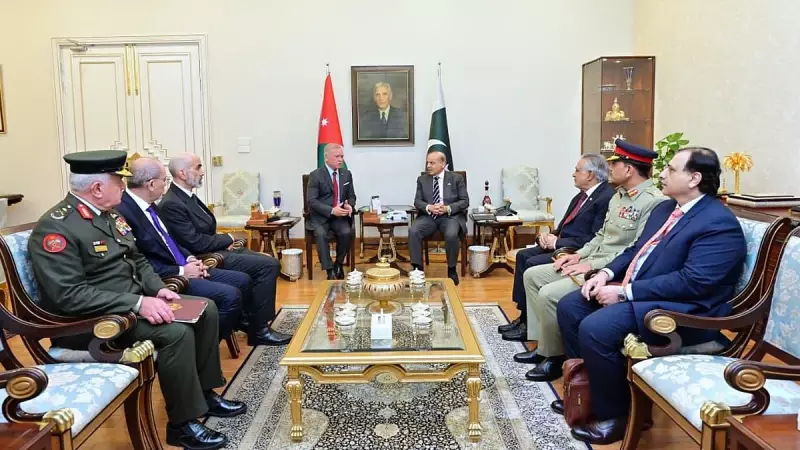
In a significant diplomatic development that marks a new chapter in bilateral relations, Jordan's King Abdullah II arrived in Pakistan on Monday for his first state visit in over two decades. The royal visit comes at a crucial time when both nations are seeking to strengthen their political and economic partnerships.
Historic Arrival and Warm Welcome
King Abdullah II and Queen Rania were received with full state honors at the Nur Khan Airbase in Rawalpindi, where a ceremonial guard presented them with a 21-gun salute. Pakistan's Prime Minister Shehbaz Sharif personally welcomed the Jordanian monarch, demonstrating the importance Islamabad places on this long-awaited visit.
The royal couple's arrival signals a renewed commitment to enhancing cooperation between the two Muslim-majority nations. This visit is particularly significant as it represents the first by a Jordanian monarch to Pakistan in exactly twenty years, with the last occurring during the tenure of former President Pervez Musharraf.
Strengthening Bilateral Ties
During their meetings, both leaders emphasized the need to expand cooperation across multiple sectors. Trade and investment opportunities featured prominently in discussions, with both nations expressing interest in increasing bilateral commerce beyond current levels.
The talks also covered critical regional and global issues, including the ongoing situation in Gaza. Both Pakistan and Jordan share similar positions on Palestinian rights, creating common ground for diplomatic coordination. Prime Minister Sharif praised Jordan's role under King Abdullah's leadership in advocating for Palestinian rights on international platforms.
Defense cooperation emerged as another key area of discussion, with both nations exploring possibilities for enhanced security collaboration. The strategic location of both countries in their respective regions makes security partnership mutually beneficial.
Regional Implications and India's Perspective
This high-profile visit holds particular significance for regional dynamics, especially from India's perspective. As neighboring nations to key Middle Eastern countries, both Pakistan and Jordan maintain relationships with India that are watched closely by diplomatic observers.
The timing of this visit is noteworthy, coming amid shifting geopolitical alignments in the Middle East. India maintains cordial relations with both Jordan and Pakistan, though the nature of these relationships differs significantly. New Delhi will likely monitor the outcomes of this visit for potential implications on regional balance.
From an economic standpoint, enhanced Pakistan-Jordan cooperation could create new opportunities for Indian businesses operating in the region, particularly in sectors where all three nations have complementary interests.
The Jordanian royal visit represents more than just bilateral engagement—it signals potential recalculations in regional partnerships that could influence South Asian and Middle Eastern diplomatic equations in the coming months.





